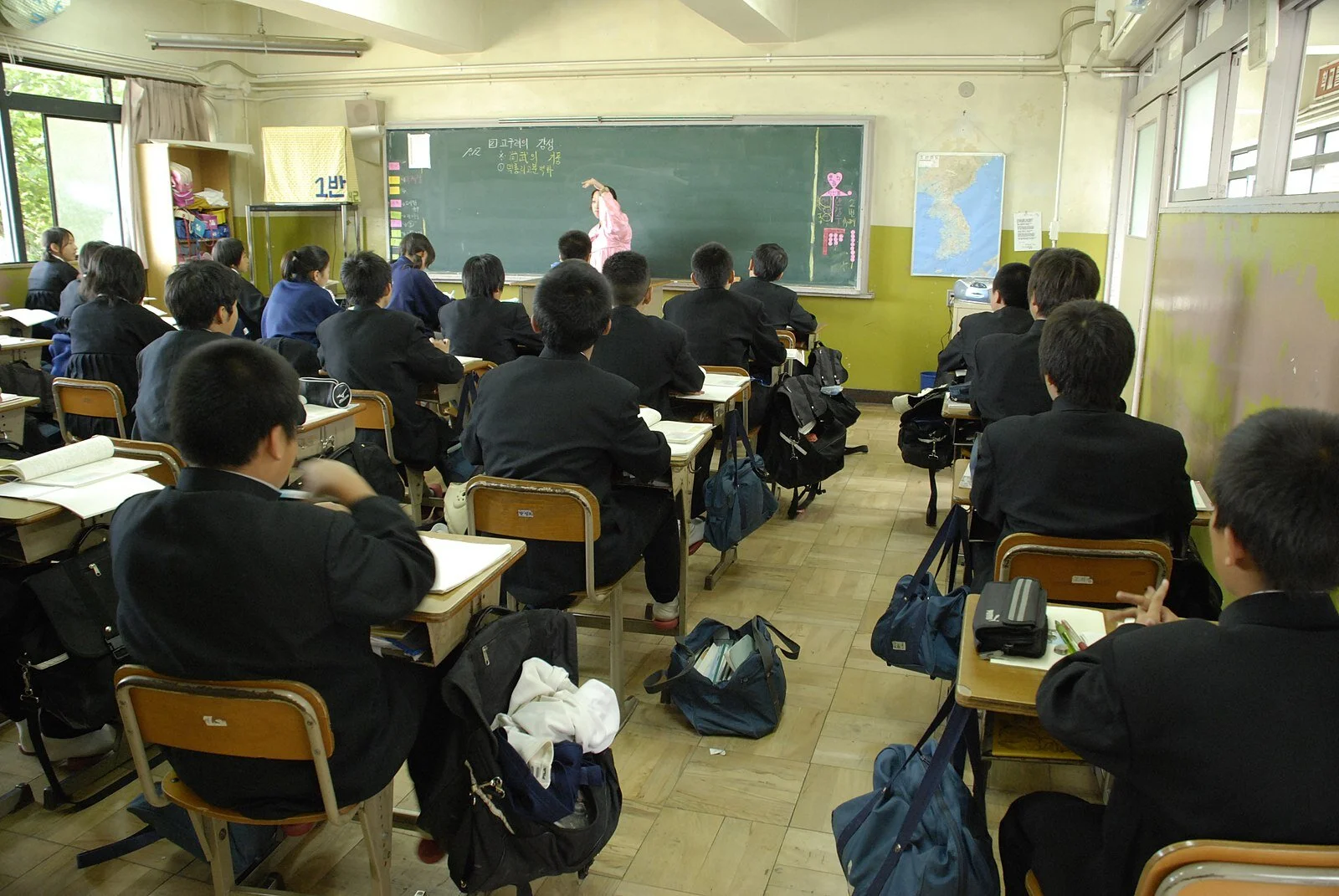Discrimination against ZAINICHI KOREANS: JAPAN must ADDRESS ITS IMPERIAL PAST
Today’s Zainichi Koreans are the descendants of the roughly 800,000 Korean labourers who were forcibly moved to Japan by the Imperial government during the late 1930s and early 1940s in order to work in Japanese mines and factories, often under deplorable conditions. Following Japan’s surrender and the signing of the San Francisco treaty in 1952, while many of these labourers moved back to Korea, close to 600,000 chose to remain in Japan for a variety of reasons, including Korea’s political instability.
The Japanese government, without any input from the Zainichi Koreans, revoked their citizenship. This arguably illegal revocation of citizenship had a variety of consequences, such as Zainichi Koreans being barred from accessing welfare benefits, including but not limited to National Health Insurance, public housing, National Pensions, and child allowance. Zainichi Koreans are required to seek re-entry permits should they leave Japan for any reason, which permits that Japan can reject. Though a special residency permit was granted in 1991 for Zainichi Koreans, many of these issues have not been resolved.
But even if the revocation of citizenship, and the subsequent disenfranchisement and barring from social welfare, wasn’t illegal, it was an abdication of responsibility that Japan had to these Koreans. The obligation owed to Zainichi Koreans by Japan is unique. Unlike other foreign residents, Zainichi Koreans did not choose to live under Japanese jurisdiction: it was forced onto their ancestors. Japan has a responsibility to ensure that these people are able to live dignified lives and maintain their cultural identity because their situation is the result of Japanese colonial and imperial policy. Japan has demonstrably failed that obligation.
In particular, the nationality requirement in the original Japanese National Pension Law, enacted in 1959, resulted in the inability for Zainichi Koreans to qualify for state pensions on the grounds that they were foreigners. Though the nationality requirement was revoked in 1982, certain groups of people remained excluded from the scheme, resulting in 20,000 elderly and 5,000 disabled Zainichi Koreans ineligible for state pensions or disability payments as of 2002, due to loopholes and exemptions in the legislation.
Japan has not studied nor remedied the situation as it pertains to Zainichi Koreans, and the lack of action from Japan is discriminatory. When the Okinawa Islands were returned to Japanese authorities, Japan took measures to ensure that the Okinawans, who under the letter of the National Pension Law would have been excluded from pension schemes, would be able to receive pensions. Judicial measures to address the situation have yet to bear fruit - multiple lawsuits against the Japanese government were filed by Zainichi Koreans regarding discrimination from the pension schemes, citing equality protections under the Japanese Constitution and legislation as the basis for suits, but the Courts dismissed all the suits, arguing that the exclusion of certain foreigners from pensions was not a violation of equality protections. But simply dismissing Zainichi Koreans as another group of foreigners washes away Japan’s imperial culpability.
Zainichi Koreans have also been systematically barred from public service in Japan and have been denied opportunities for public management or advancement. Local governments in Japan have the authority to restrict promotions to non-Japanese residents, a discriminatory practice that was upheld by the courts. These include positions in Japanese social services such as public schools, firefighting, child welfare services, or hospitals.
This discrimination is also present in the judiciary: Japan’s civil system involves a practice where lawyers nominated by the local bar association and approved by the Supreme Court sit on a committee to help negotiate and adjudicate settlements. As of 2014, local bar associations have nominated 31 Zainichi Korean lawyers to serve on these committees. None have been accepted by the Supreme Court, despite the fact that Zainichi Korean lawyers live and were born and raised in Japan, speak Japanese, passed Japan’s bar, and have the right to practice law in Japan, a profession that incidentally was legally closed to Zainichi Koreans until 1990.
The most controversial point of contention between Zainichi Koreans and the Japanese state (as well as Japanese society generally) is the issue of ethnic Korean schools, known in Japanese as Chōsen Gakkō (literally meaning “Korean school”).
Though there are two main Korean residents organizations in Japan that exist to preserve Korean culture and identity within the Zainichi Korean community, the Chongryon, the group which is supported by the Democratic People’s Republic of Korea (DPRK), has been more aggressive and vocal, particularly in the education sphere. The majority of ethnic Korean schools are operated by and funded by the Chongryon, and the conflict stems from the Chongryon’s connections to the DPRK and its role in educating Zainichi Korean youth.
While some Japanese prefectures have provided some funding to the Chōsen Gakkō, the amount is insufficient and has been declining. Between 2006 and 2017, 16 prefectures dropped all funding to the Chōsen Gakkō, and the amount of funding itself has also dropped from ¥624M in 2006 (~£2.68M in 2006) to ¥122M in 2016 (~£847,980 in 2016). The Japanese Supreme Court sided with the government over a lawsuit regarding the lack of funding for the Chōsen Gakkō in August. The majority of funding for these schools comes from the Chongryon, and by extension, the DPRK. Some advocate entirely eliminating Japanese state-funding to the Chōsen Gakkō, arguing that the association that these schools have with the DPRK justifies cutting funds.
But that argument misses the point entirely. Regardless of the Chōsen Gakkō’s association with the Chongryon, Japan is morally obliged to fund these schools as a form of reparations to the Zainichi Korean community. Japan has a moral obligation to help the people it displaced preserve their language and customs. This is an obligation divorced from Japan’s relationship with the DPRK or the crimes of that state; it has everything to do with making amends for Japan’s imperial crimes.
In 2010, the Japanese government announced the high school tuition-waiver program, a program that would eliminate tuition fees for schools in Japan via public funds. Chōsen Gakkō were excluded from the program, despite the fact that other foreign schools were included. The government’s reasoning for the exclusion was that Japan had no relations with the DPRK and therefore was unable to verify that the Chōsen Gakkō had similar education standards to Japanese state schools. The argument is tenuous: in addition to education in the Korean language, culture, and history, the Chōsen Gakkō curriculum also includes education on Japanese history and society.
Aside from funding issues, there is also a problem with how Japanese society treats these schools. In 2003 the Japanese government changed its policy to allow graduates from foreign secondary schools, such as international schools, to sit entrance examinations for Japanese universities - except for the Chōsen Gakkō. Thus the Zainichi Koreans choosing to honour their heritage by being educated in Korean and about Korean culture are placed at a disadvantage in the society they live in. As a result, they are prevented from attending Japanese universities and subsequently face harder employment prospects.
Advocates for the complete assimilation of Zainichi Korean groups into Japanese society miss the point. While the lives of Zainichi Koreans might be easier if they attend Japanese state-schools or adopt Japanese nationalities, they shouldn’t have to choose.
Japan has actively wronged the Zainichi Korean community. They removed Koreans from their homelands and forced them to work dangerous jobs in the name of an empire that stole their sovereignty, tried to eliminate their culture, forced their countrywomen into sexual slavery, and exploited their homeland. Why should the burden be on Zainichi Koreans to adopt the identity of the society that cruelly mistreated them, their ancestors, and their nation in order to live dignified lives? Japan’s abuse of Zainichi Koreans highlights the breathing legacy of Japan’s cruel colonialism and Japan’s need to get serious about atoning for its imperial past.
Image courtesy of 최용빠 via Wikimedia, ©2007, some rights reserved.



